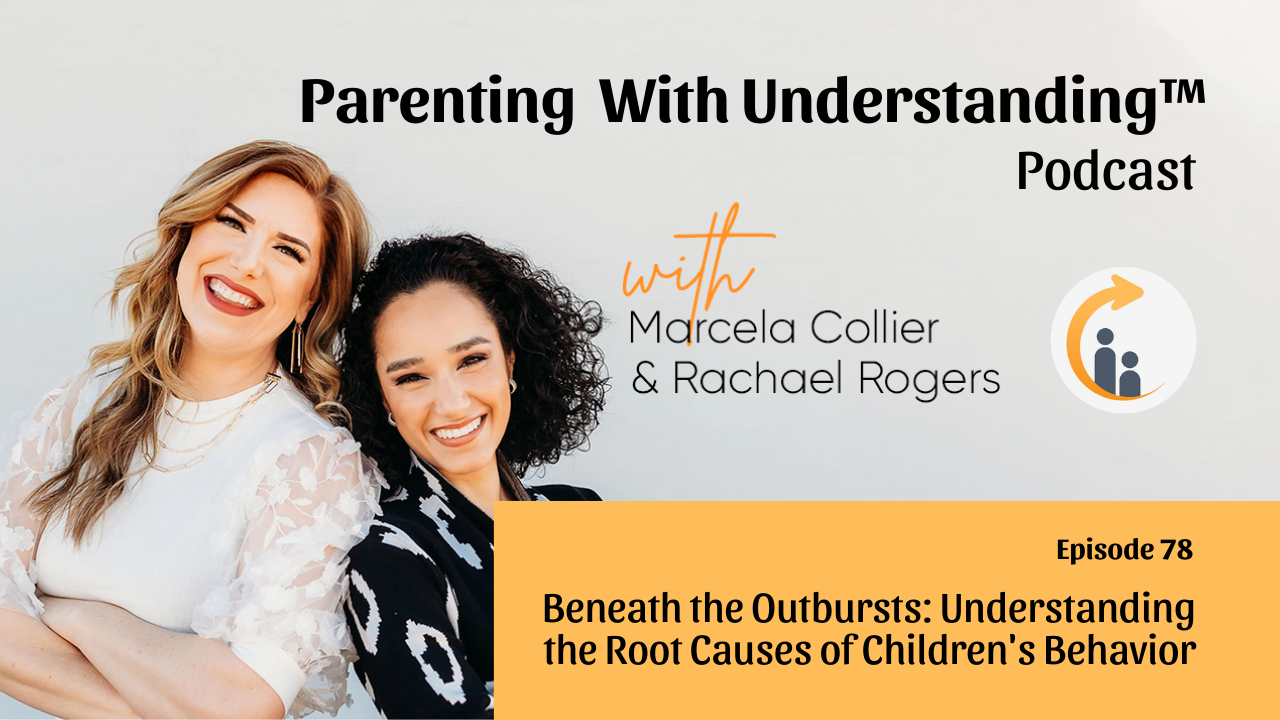Epi #78. Beneath the Outbursts: Understanding the Root Causes of Children's Behavior
Sep 19, 2023
Meltdowns at the grocery store, defiance at bedtime, and sibling squabbles can make even the most committed parent wonder: What am I missing?
If this resonates with you, know that you're not alone.
Many parents are striving to understand the undercurrents driving their child's behavior. Let's dive deep into the root causes so you can move from reactions to meaningful connections.
The Iceberg Analogy
Imagine an iceberg. What we see on the surface is only a fraction of what exists below. Similarly, a child's behavior is just the tip of their emotional, psychological, and physiological iceberg.
Beneath those tantrums or refusals, there's a vast world of feelings, needs, and experiences.
The real reasons for behavior often lie beneath what's immediately visible.
Dr. William Glasser's renowned Five Basic Needs offers a unique lens to understand and address your child's behavior.
Let's explore this perspective to move from reacting to our children’s behaviors to responding to what our children need.
1. The Need for Love and Belonging
This is perhaps the most dominant need in human life. Children crave the feeling of being loved, accepted, and connected.
Behaviors displayed when this need is present: Acting clingy, seeking attention (either positive or negative), acting out when a new sibling arrives, or becoming excessively people-pleasing.
Ensure that your child feels seen and heard.
Spend quality one-on-one time with them.
Validate their feelings and reassure them of their special place in your heart and family.
Encourage family activities that foster connection.
2. The Need for Power
Children, like adults, want to feel skilful and competent
Behaviors displayed when this need is present: Showing off in front of peers, peer competition, giving up when failing, anger outbursts when losing.
Allow them to feel skillful and powerful with little wins. This will encourage them to persist and not give up. Ex. “I see you completed your one-digit math problems; congratulations, we have to tackle two-digit math problems.”
Acknowledge their efforts and involve them in decisions that concern them. When they feel involved and recognized, the need for power is channeled positively.
3. The Need for Freedom
This need is about personal autonomy and space. Children desire freedom to explore, play, and make decisions.
Behaviors displayed when this need is present: Resisting overly tight schedules, rebelling against restrictive rules, or becoming frustrated when overly confined.
Provide opportunities for unstructured play and exploration.
Allow them to take on appropriate responsibilities for their age, giving them the freedom to complete it.
Discuss boundaries and their reasons, ensuring they feel a sense of agency within those limits.
4. The Need for Fun
Play and enjoyment are vital for a child's development. It's their way of learning, understanding the world, and relaxing.
Behaviors Displayed: Boredom, seeking stimulation in disruptive ways, becoming a 'class clown' or constantly fidgeting.
Parental Response: Incorporate play into daily routines. Whether it's turning cleaning up into a game or having dance breaks, ensure a balance of fun in their day. Support their hobbies and interests, showing them that fun is a valuable part of life.
5. The Need for Survival
This encompasses the basic needs for food, shelter, and safety.
Behaviors displayed when this need is present: Anxiety in unstable environments, hoarding food or refusing to eat or to go to sleep, becoming overly clingy, or seeking constant reassurance.
Create a stable, predictable environment. Regular meals, a consistent routine, and reassurances can mitigate many behavior challenges stemming from this need.
Open dialogues about their fears or concerns can also help them feel safe and protected.
Wrapping It Up
No matter how perplexing, every behavior is rooted in a fundamental need.
With Dr. Glasser's Five Basic Needs as our compass, we can journey deeper into our children's world, addressing not just symptoms but the very essence of their actions.
To further aid you in this journey, our latest episode of the "Parenting With Understanding" podcast delves even more deeply, offering insightful examples and strategies to navigate these needs effectively.
Listening to it could provide that additional clarity you've been seeking.
Yet, we understand that sometimes, the guidance of a dedicated expert can be transformative.
If you ever need direct, specialized guidance to unveil your child's unique needs and tailor your approach, consider applying for coaching at HIC Parenting Education. Our professional parenting coaches are here to support, guide, and empower you every step of the way.



